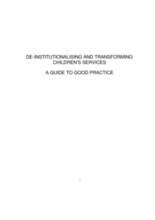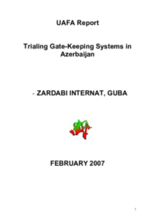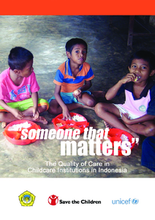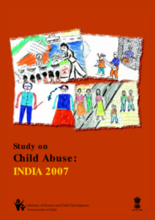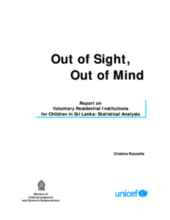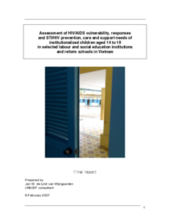Displaying 641 - 650 of 721
A clear, concise, and evidence-based summary of the effects of institutional care on children. Identifies key steps to transforming children's services to promote alternative care. Links to training resources at European Union Daphne Project website.
Examines practice of using institutional care for children in poverty and recommends alternative responses to maintain families.
The aim of this report is to review international human rights norms as well as Liberian legislation, and to assess the compliance of orphanages with those standards.
Documents implementation of Azerbaijan's national de-institutionalisation and alternative care programming
Comprehensive evaluation of national responses and level of care standards for children without parental care in Indonesia.
Presents the findings of a nationwide study into the extent and characteristics of child abuse and girl neglect in India. Includes: children in a family environment but not attending school; children in schools; children in institutional care; working children; and street children.
This report provides a general overview of the situation of voluntary residential care institutions in Sri Lanka through the results of a national assessment campaign conducted in all districts by Probation Officers and Child Rights Promotion Officers.
This video by Save the Children highlights key research findings from an assessment on the quality of care in children's homes in Indonesia (2007), jointly published with the Indonesian Ministry of Social Affairs and UNICEF.
A study of the management, operations, and care offered by institutions for AIDS orphans in South Africa. It compares the findings of registered and unregistered institutions.
Qualitatively assesses the vulnerability of children living in institutional care in Vietnam. Includes specific recommendations for systems strengthening to reduce vulnerability in various institutional contexts.

